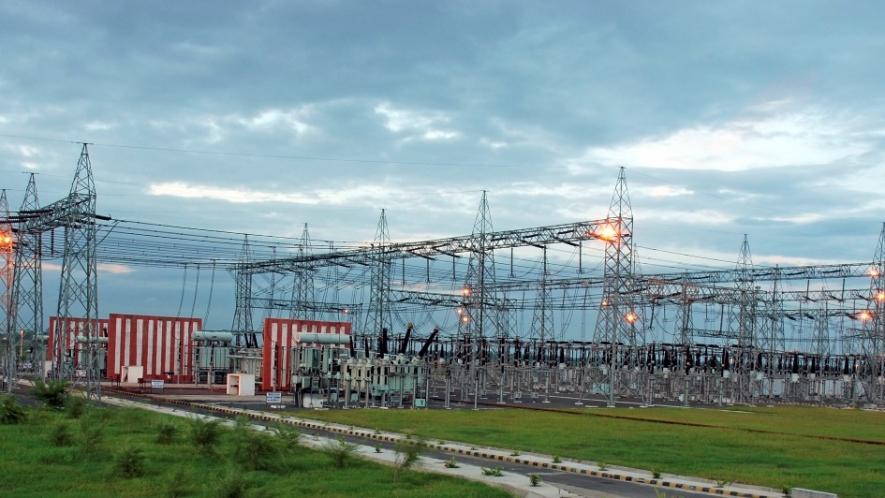Ministry of Power’s Misinformation on Grid Stability on 5th April

Representational image. | Image Courtesy: Power Grid India
We are giving below the answers that PIB has put up regarding the 5th April 9 PM event of 9 minutes and the possibility of grid instability and our comments. To put it mildly, the answers given by Ministry of Power is misleading. In plain English, MoP is lying to the people. The question is not whether or a grid instability or collapse will happen. We think the grid authorities have taken enough measures to ride out the huge shock to the grid that the Modi event will create. But this was a needless risk to the grid that we do not need at this moment of national crisis with the Covid-19 epidemic.
MoP’s Question 3: Whether adequate arrangements and protocols are in place to handle grid stability during light out event on 5th April at 9:00 PM to 9.09pm ?
MoP’s Answer: Yes, all adequate arrangements and standard operating protocols are in place to maintain grid stability.
NC Comment: Wrong. There are no standard operating protocols (SOP) for such an event. The 26 point plan drawn up by Power System Corporation Ltd. (POSCO), the authority that runs the national grid, says, “Unlike normal operation, this reduction in load of the order of 12-13 GW would happen in 2-4 minutes and recover nine minutes later within 2-4 minutes. This sharp reduction in load and recovery, which is unprecedented…”. In other words, this is not only not a normal operations for the grid, but an unprecedented event. Plain English, the grid has never seen such an event before!! Therefore no question of any (SOP) for such an event.
Further, if POSCO had felt that it was an event already covered by standard operating protocol, why did it draw up such a detailed plan for this “unprecedented” event. And the Section D. General Guidelines, point i. says:
All the entities shall ensure black start facilities mentioned in the restoration procedures of RLDCs are in healthy condition.
This means that if grid collapses, then all the generating stations that can execute black start, means starting generating equipment without needing power from the grid, should be ready to do so. This directive is not a part of any operating protocol of the grid that exists, and has been drawn up in this case only because POSCO envisages that there is the possibility of a grid collapse during such an “unprecedented” event.
MoP’s Question 5: Some apprehensions have been expressed that this may cause instability in the grid and fluctuation in voltage which may harm the electrical appliances.
MoP’s Answer: These apprehensions are totally misplaced. These are normal phenomenon and the Indian Electricity Grid is well designed to handle such load variation and frequency changes as per standard operating protocols.
MoP’s Question 6: Whether our grid management and technology deployed will withstand the fluctuation that light out may cause?
MoP’s Answer: Indian electricity grid is robust and stable and employs state-of -art technology. It has in place necessary control and protective elements capable of handling such kind of fluctuations in demand at any instant of time.
NC Comment (clubbing 5 & 6 above): As we have already explained, grid has no protocol in which 10-15% of the grid load goes off suddenly and comes back within 9 minutes. A load swing of this magnitude is not only not a normal phenomena but as POSCO itself says, an “unprecedented” event.
Further, if indeed this is standard operating protocol, why such an elaborate arrangement and a detailed 26 point plan by POSCO?
MoP’s Question 4: Is it compulsory or voluntary to switch off lights?
MoP’s Answer: Voluntary. As already said only domestic home lights have to be put off.
NC Comment: If voluntary, why does this answer say, “...only domestic home lights have to be put off.” Have is not the same as may or can, put suggests that it is obligatory. Bad English perhaps?
Get the latest reports & analysis with people's perspective on Protests, movements & deep analytical videos, discussions of the current affairs in your Telegram app. Subscribe to NewsClick's Telegram channel & get Real-Time updates on stories, as they get published on our website.























